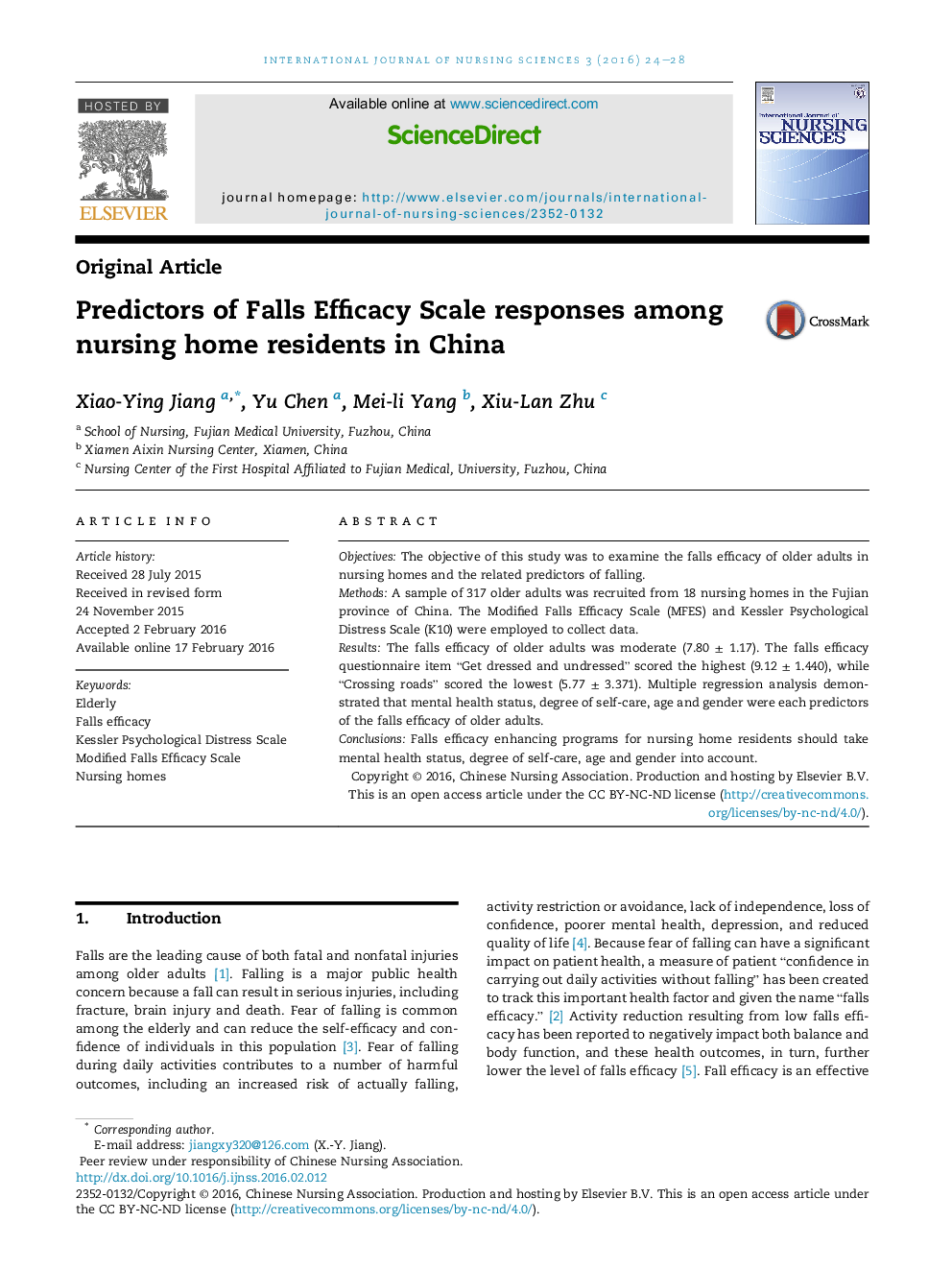| Article ID | Journal | Published Year | Pages | File Type |
|---|---|---|---|---|
| 2652749 | International Journal of Nursing Sciences | 2016 | 5 Pages |
ObjectivesThe objective of this study was to examine the falls efficacy of older adults in nursing homes and the related predictors of falling.MethodsA sample of 317 older adults was recruited from 18 nursing homes in the Fujian province of China. The Modified Falls Efficacy Scale (MFES) and Kessler Psychological Distress Scale (K10) were employed to collect data.ResultsThe falls efficacy of older adults was moderate (7.80 ± 1.17). The falls efficacy questionnaire item “Get dressed and undressed” scored the highest (9.12 ± 1.440), while “Crossing roads” scored the lowest (5.77 ± 3.371). Multiple regression analysis demonstrated that mental health status, degree of self-care, age and gender were each predictors of the falls efficacy of older adults.ConclusionsFalls efficacy enhancing programs for nursing home residents should take mental health status, degree of self-care, age and gender into account.
